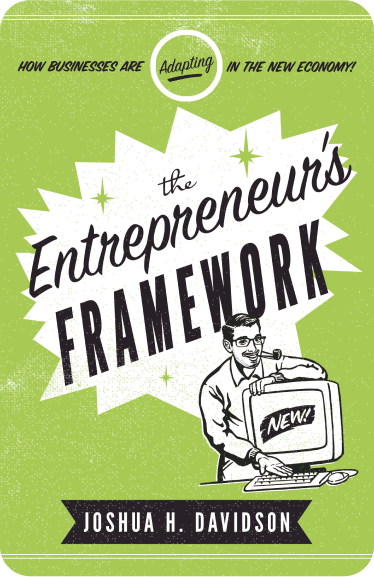When it comes to building a brand for a product or company, there are many different roads you can take. Some brands are mission-driven; others are founder-driven.
There is no better example of this than Elon Musk and Tesla.
Currently, in the public consciousness, it is almost impossible to separate the idea of Elon Musk from his companies Tesla and SpaceX.
In this post, we will explore how this has helped skyrocket Tesla to unprecedented growth, as well as the current challenges this branding tactic presents.
Ultimately, should you consider using the power of persona to bolster your brand?
Let’s take a look.
Elon Musk’s Persona Is A Big Part Of What Made His Success
The argument could be made that building a globally known persona as an eccentric genius is a big part of what has catapulted Elon Musk to incredible wealth and success.
It is often reported that he is the world’s richest person.
Through Twitter, he has cultivated a more than 100 million-person following. Many hang on his every word, awaiting musings and memes, like this one:
The Formula for Success?
For years, people wanted to root for him. They had incredible confidence in him, and believed that he could never fail.
Many still feel this way. It is undeniable that he has created a vast cult following.
This has likely played a large role in him being able raise large sums of money for almost any project from other investors and institutions, seemingly at will.
In general, the public, investors, and EV buyers had seemingly unshakeable confidence in him for many years. His persona has played a huge role in generating this result.
The Benefits of Branding Around Persona
When it comes time to market a company or a product, it is not uncommon for people to feel stuck. How do we market to people? How do we connect with an audience? How do we make this memorable?
Something we have talked a lot about on the blog is the power of storytelling when it comes to branding and marketing.
Ultimately, most people do not make decisions that logically. They respond to emotion and narrative more than numbers.
As people build relationships naturally with others, it can seem like an obvious choice to create a brand figurehead that they can latch onto and relate to.
There are several conflicting stories out there about Elon Musk’s early life, but one is that he learned to code young, and from humble beginnings has become a wild success. That is the kind of story that people like.
Especially in the US, people love a rags-to-riches underdog story. That is a persona that many people find aspirational and want to support.
The Power of Brand Recognition
There is no denying that Elon Musk’s persona has set Tesla apart in the market. For years, Tesla was more or less the only EV company. Now that is not the case.
Even now, as other major corporations catch up with their own offerings, can you name any of them? Do you have any strong opinions about them? Can you name any of the people behind them?
Unless you are very interested in tech developments or shopping for an EV, it is quite likely that you can’t name almost any other EV makers. This is powerful.
Elon Musk Has a Persona Problem
While this persona may have made him, it could also break him. Many are starting to feel what could be described as ‘Musk Fatigue.’
When someone is highly exposed to the public eye, it is inevitable that unflattering things will come out about them. This is not unique to Elon Musk. It is part of being a public figure.
However, the way Elon Musk uses his public platform has given a lot of people pause and started to knock down some of that confidence.
When you post many of your opinions publically, it is inevitable that you will alienate some people. Especially if those opinions are controversial. Many find his use of memes jarring and unprofessional.
According to a recent Bloomberg report, this persona is causing embarrassment to some Tesla owners, as well as making some choose other EV makers entirely.
Dennis Levitt, who described himself as a “Musk Fanboy” almost a decade ago, told the publication:
“Over time, his public statements have really come to bother me,” Levitt said, citing the CEO’s spats with US President Joe Biden, among others. “He acts like a seven-year-old.”
This kind of attitude is not unique to Levitt.
Creative Strategies, a California-based customer-experience measurer, mentioned owner frustration with Musk in a study it published in April. A year earlier, research firm Escalent found Musk was the most negative aspect of the Tesla brand among electric-vehicle owners surveyed.
The Cons of Persona-Based Branding
Essentially, when you make a public figure the core of your brand, your company’s success may depend on the consumers continuing to like and support that person.
This can be a tricky game to play, as one scandal could alienate almost all of your customers. In the case of Elon Musk, there have been numerous scandals and alleged wrongdoings. These include (but are not limited to):
-Fathering children with a female employee secretly.
-Having an affair with the co-founder of Google’s wife.
-Firing SpaceX employees who begged him to stop Tweeting in a letter.
-Paying $250,000 to a SpaceX employee who accused him of sexual harassment.
-A complicated web of public family issues.
-His failed purchase of Twitter.
–Manipulating his audience as a part of a crypto pyramid scheme.
-Numerous problems with the quality and safety of the cars Tesla produces.
Here we have the big catch-22 of persona as a part of branding.
High Exposure, High Stakes
As a very prominent and powerful public figure, Musk built an empire.
However, being so deeply embedded in the public consciousness means that all of these negatives are also on full display.
If enough EV buyers decide that they don’t want to associate with him, and therefore don’t buy Teslas, that would be a big problem for the company.
Bloomberg talked to Tesla owners who said that having to constantly answer for all of Elon Musk’s tweets is incredibly embarrassing. A YouTube chef in LA told the publication that he wouldn’t even take a Tesla “if he won one.”
Final Thoughts on Elon Musk, Tesla, Persona, And Branding
While Elon Musk has had a dedicated fanbase for years, it seems he is starting to gain more vocal detractors, which is an inevitability of longtime exposure in the public eye.
It is also important to remember that the success of a company does not depend on branding alone. Market conditions are also key.
Tesla was more or less the only widely known EV option for consumers for years. Now, that there is more competition, this may pose a bigger challenge to Tesla than any of Musk’s alleged scandals or inflammatory tweets.
What do you think of all of this? Are you an Elon Musk fan? Comment below!
Since 2009, we have helped create 350+ next-generation apps for startups, Fortune 500s, growing businesses, and non-profits from around the globe. Think Partner, Not Agency.
Find us on social at #MakeItApp’n®

















